How to allow curiosity as a superpower for your life
Curiosity as a superpower
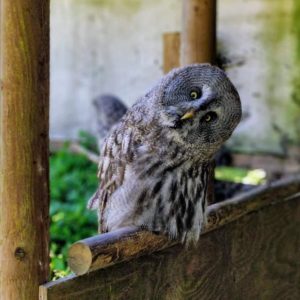 Do you have a superpower? I occasionally get asked this question and although I have a few ‘gifts and talents’ my consistent response is usually “curiosity’. I have been wired to ask questions from the womb. (Of course, no one heard my wonderings about life outside the womb but I am sure I had them.) Curiosity as a superpower can have surprising results.
Do you have a superpower? I occasionally get asked this question and although I have a few ‘gifts and talents’ my consistent response is usually “curiosity’. I have been wired to ask questions from the womb. (Of course, no one heard my wonderings about life outside the womb but I am sure I had them.) Curiosity as a superpower can have surprising results.
I remember a time when I was perhaps six or seven years old. I was in the kitchen with my sister doing dishes and was questioning her insistence that a box did not really exist, that it was only an idea, and that its reality depended on molecules and energy and forces we couldn’t see.
That was how many decades ago? I am still pondering that one. Metaphysical stuff can addle an otherwise competent brain.
On the other hand, I did have questions about simple things like what causes wind and why if the ripples on the lake are rolling towards the shore I am standing on, why wouldn’t they be rolling away from the shore on the opposite side of the lake.
Be careful who you ask
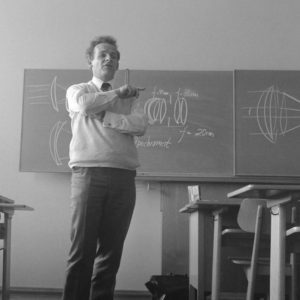 My father was a science teacher and I trusted implicitly everything he told me because, after all, why would he lie? That particular evening as I rubbed yet another plate dry, I asked him “Dad, what causes the wind?”
My father was a science teacher and I trusted implicitly everything he told me because, after all, why would he lie? That particular evening as I rubbed yet another plate dry, I asked him “Dad, what causes the wind?”
His immediate reply as he swayed left and right was “The trees waving back and forth.”
Do you know that to this day I struggle with what I know to be true with what I have been told!
As I observe all of humanity in conflict with each other, with science, and in politics, I realize we humans are vulnerable to believe whatever we have been told, depending on who is doing the telling.
In my case, it was someone I trusted to love me and I was too young to factor in his frailties or personality.
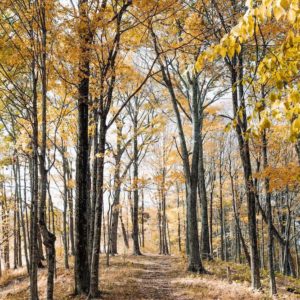 Perhaps he heard me wrong? Maybe he was distracted or tired? It was probably his sense of humor that scaled over the top of my head.
Perhaps he heard me wrong? Maybe he was distracted or tired? It was probably his sense of humor that scaled over the top of my head.
But this image that the wind is created by the trees has never left me. It is a piece of my personal truth that defies logic. It is an example of curiosity as a source of misinformation.
I smile when the wind blows and the trees move. Or do I smile when the trees sway and I feel the breeze?
Curiosity leads to research
Now the matter of the tide coming in is another story.
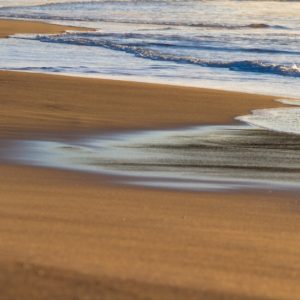 I took this question on as a science fair project learning all about wave action — that it is an up and down motion and not east and west.
I took this question on as a science fair project learning all about wave action — that it is an up and down motion and not east and west.
I demonstrated it with a string tied to a wall and put it into wave action by attaching it to a hand-held jigsaw. I drew charts and wrote a report. Here was an example of doing the research, seeing it with my own eyes and yet. —And yet I still stand on a beach and I ‘know’ the waves coming in over my toes in Maine are rolling away from the toes of someone in England.
If I, with a competent and inquiring mind, can hear untruths and not let them go despite research, how then can I judge others who do the same thing when it comes to whether to wear a mask during a pandemic or not? Of course, I do judge, because the issue is one of life and death. Nevertheless, I can nod with the understanding that what gets lodged in our brains as ‘fact’ is difficult to shake off.
I am not a brain scientist and I haven’t done any research in the area of why we believe what we do the way we do. But I am a ponderer. I ask questions. And I will never stop.
To be a hard-core questioner is to live with uncertainty, to live with ‘not knowing’ and for some people, this is a murky place to reside. They would rather ‘know’ what they know and defend it to the death.
Curiosity as a tool for compassion
The gift of curiosity is what keeps me from going down a rabbit hole of debate with conflicting opinions. I can ask “why does she believe what she does” and remember that she learned her ‘truths’ somewhere else just as I did. And without the gift of curiosity that wants to look at everything, even metaphysical boxes, from every angle, it makes a lot of sense to stand by what you think you see or have been told.
To “Live the questions” as Rilke taught in his “Letters to a Young Poet” is to surrender the need to know the ‘one right answer’ and live into possibilities.
FROM: LETTERS TO A YOUNG POET
Be patient toward all that is unsolved in your heart
and to try to love the questions themselves
like locked rooms and like books that are written
in a very foreign tongue.
Do not now seek the answers,
which cannot be given you
because you would not be able to live them.
And the point is, to live everything.
Live the questions now.
Perhaps you will then gradually, without noticing it,
live along some distant day
into the answer.
– Rainer Maria Rilke
What questions are you living with that you find difficult? If there were not one right answer to each of those questions how would it change your life?
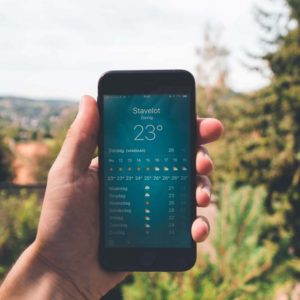 An example – I woke up this morning with a question about the weather. If it was going to be sunny I knew I would be happier than if we were going to get nothing but rain. And so I asked the question of my weather app.
An example – I woke up this morning with a question about the weather. If it was going to be sunny I knew I would be happier than if we were going to get nothing but rain. And so I asked the question of my weather app.
I let technology determine the level of my joy!
Now sometimes there is a practical need to know if I plan to be outside, but my plans today do not depend on the sun or rain.
If I decide to live the question, my level of joy is no longer at risk, for my heart and mind are open to whatever happens. It is one reason why I don’t often consult the weather app.
One last question to live with no answer
Another question I live with on a daily basis is how long I will live, and what I will do in the time I have left.
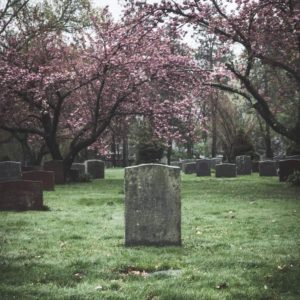 Now, there is no app for this question.
Now, there is no app for this question.
I can read statistics, take a gazillion measurements of weight, height, and activity levels, factor in my genetic history and previous illnesses, and compare my expected lifespan with other people and their data.
Would I then have an answer that would answer this question? Would I want it even if it were available?
I think you know my response to that question. No, I choose to ‘live the question’, to accept each and every day as it is apportioned to me, and to be grateful. I’ll leave my longevity question to the statisticians and intentionally never read their reports.
[Photo Credits from Unsplash: tombstone by tomb-stone-john-thomas; weather app by lloyd-dirks; tide by photoholgic; trees by andrew-neel; teacher by immo-wegmann; owl by josh-mills]
NEVER MISS AN ARTICLE FROM THEREFLECTIVEPEN
Sign up now and receive it every Sunday morning to have with your tea


Donna Marsh
I too have enjoyed asking the deep questions and know I most likely will not get answers in this existence but perhaps in the next.
Living in the field of possibilities is like a meadow of wildflowers. Usually some special flower will catch your attention and you move towards it. Voila….we just chose our possibility. We move and embrace what is before us.
Questions for me are like the tide, they come, they go, but still enjoyed.
Ardis Mayo
Donna – I love your wildflower metaphor. May our lives continue to be filled with an abundance of such beauty and possibility.
Susan Shofner
Thanks for the this view on curiosity. It is a timely one. Especially the part about what to do with the time we have left.
Ardis Mayo
I am so glad you were curious enough to read it and kind enough to comment. Thank you.